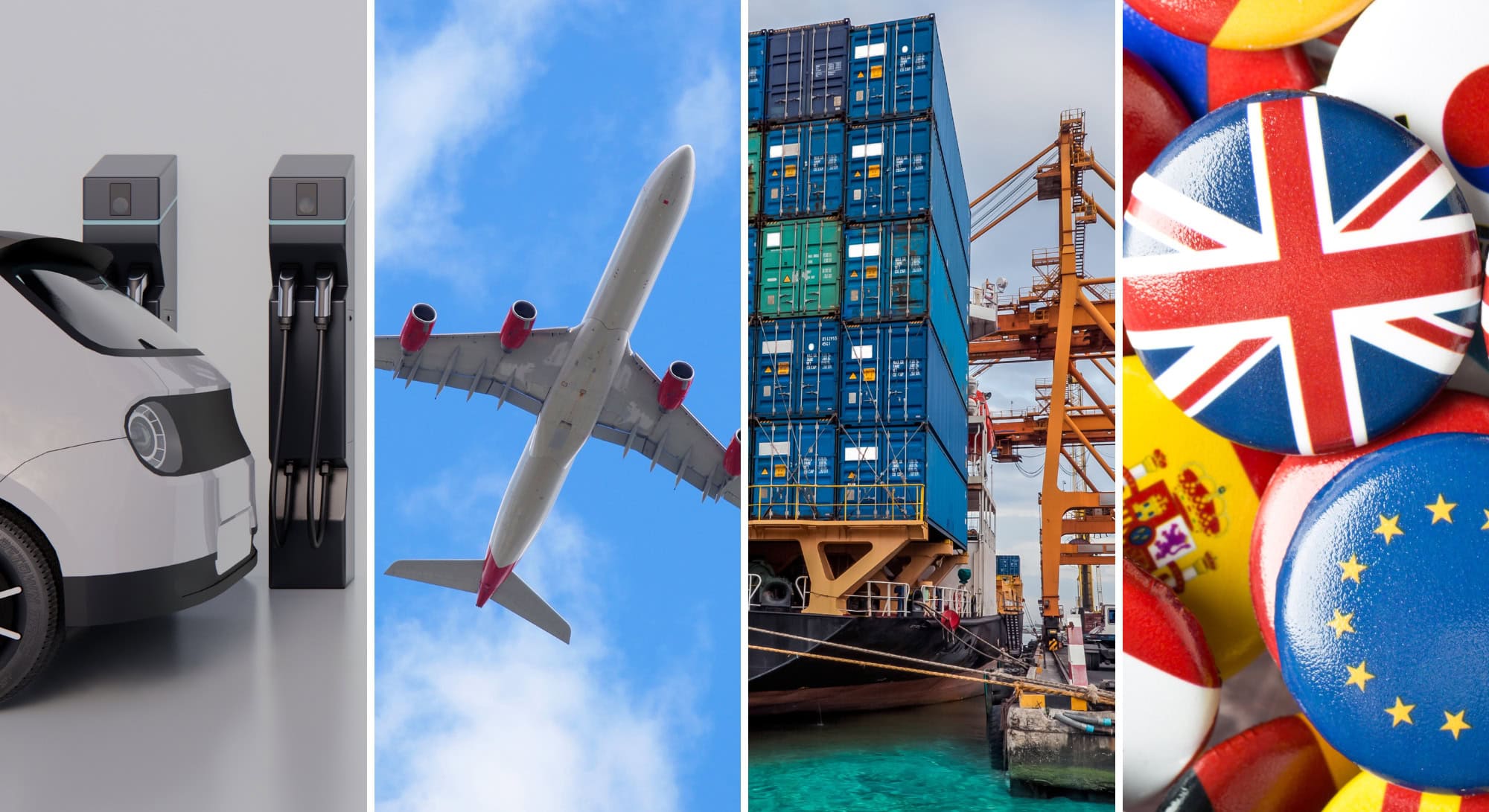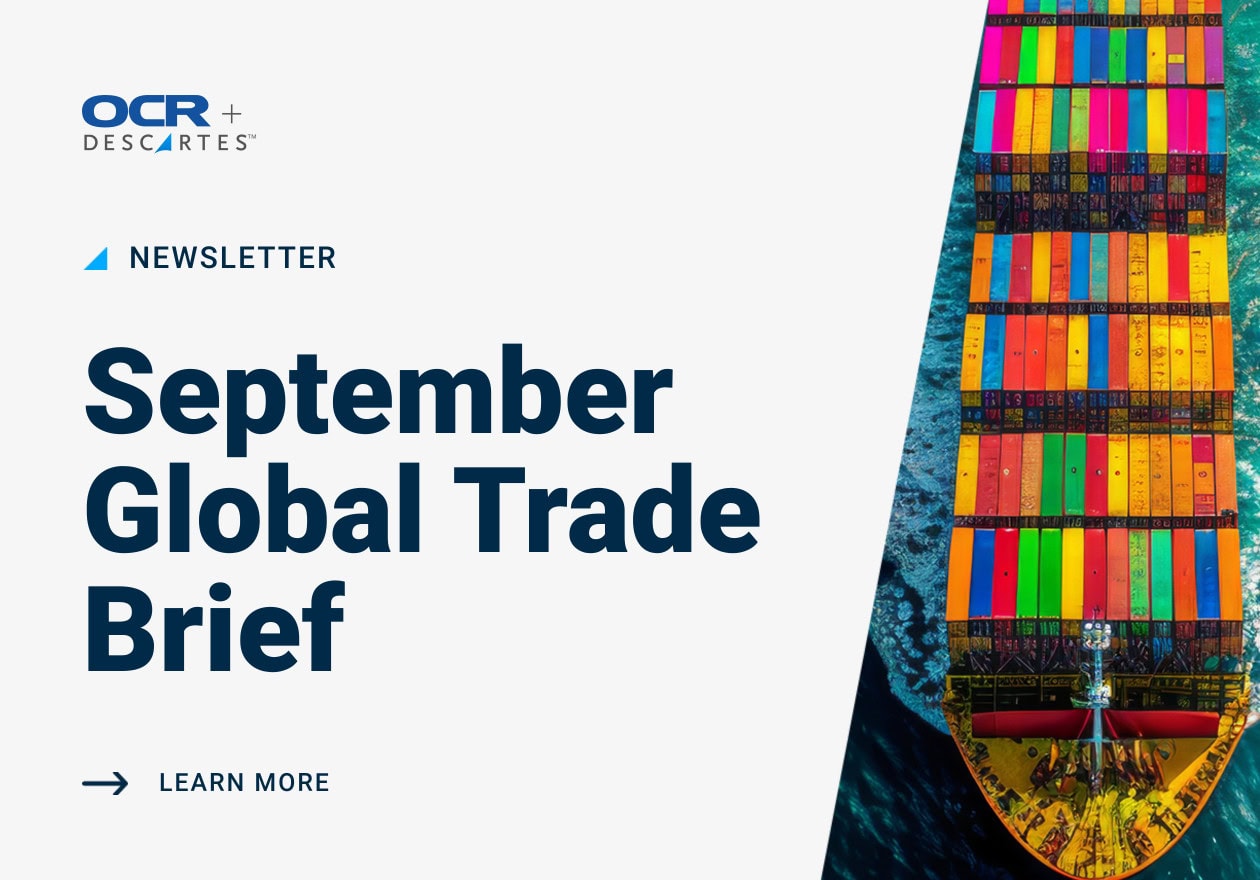Department of Commerce, Department of the Treasury, and Department of Justice Tri-Seal Compliance Note: Obligations of foreign-based persons to comply with U.S. sanctions and export control laws
Foreign-based companies and individuals are advised to take seriously the impacts of U.S. sanctions and export control laws on their business and operations. Global business organizations and others who participate in international trade should take appropriate steps to understand how these laws may apply to them, what risks are posed by their business operations, and how they can mitigate these risks.
OFAC has actively employed its enforcement authorities against foreign financial institutions and other foreign persons who have, among other things, caused U.S. persons to violate OFAC sanctions, conspired to do so, indirectly exported services from the United States, or otherwise engaged in violative conduct. Examples of this conduct include when a non-U.S. person:
- Obscures or omits reference to the involvement of a sanctioned party or jurisdiction to a financial transaction involving a U.S. person in transaction documentation;
- Misleads a U.S. person into exporting goods ultimately destined for a sanctioned jurisdiction;4 or
- Routes a prohibited transaction through the United States or the U.S. financial system, thereby c
The U.S. Department of Commerce’s Bureau of Industry and Security (BIS) administers and enforces export controls on dual-use and certain munitions items through the Export Administration Regulations (EAR) under the authority of the Export Control Reform Act of 2018 (ECRA). Unlike many other countries, where export-related authorities are limited to direct exports, U.S. export control laws may extend to items subject to the EAR anywhere in the world and to foreign persons who deal with them. To put it simply, the law follows the goods.
In addition to the initial export, the EAR also applies to the following:
- Reexports, or the shipment of the EAR item from one foreign country to another foreign country and in-country transfers (the transfer of an item subject to the EAR within a foreign country); Goods that incorporate a certain percentage of controlled U.S. content (also known as the de minimis thresholds); and
- Exports from abroad, reexports, and in-country transfers of certain foreign-made items produced using U.S. software, technology, or production equipment (thus subject to a foreign direct product rule, or FDPR). BIS actively enforces U.S. export control laws, regardless of where the offending party is located. Anyone involved in the movement of items subject to the EAR must adhere to U.S. export control laws.
The Department of Justice (DOJ) is authorized to bring criminal prosecutions pursuant to IEEPA and ECRA for willful violations of U.S. sanctions and export control laws. Conduct prohibited under these statutes includes “caus[ing] a violation of any license, order, regulation, or prohibition issued” pursuant to IEEPA as well as “caus[ing]” or “induc[ing]” the doing of any act prohibited, or the omission of any act required by ECRA or the EAR.18 Willful violations of either statute are punishable by imprisonment of up to 20 years and a $1 million fine.
Source: https://ofac.treasury.gov/media/932746/download?inline
Trade agreement between India and the European Free Trade Association (EFTA)
On 10 March 2024, Member States of the European Free Trade Association – Iceland, Liechtenstein, Norway, and Switzerland – and the Republic of India signed a comprehensive Trade and Economic Partnership Agreement (TEPA).
The negotiations between EFTA and India started in 2008, 21 rounds of negotiations were needed to reach an agreement on 10 March 2024.
The landmark agreement between India and EFTA is set to bring significant economic benefits, such as better integrated and more resilient supply chains, new opportunities for businesses and individuals on both sides leading to increased trade and investment flows, job creation, and economic growth.
The agreement enhances market access and simplifies customs procedures making it easier for Indian and EFTA businesses to expand their operations in the respective markets. The agreement further aims to facilitate and promote investment opportunities between the Parties.
Source: https://www.efta.int/free-trade/free-trade-agreements/india
BIS imposes stricter export controls on items destined for Nicaragua
BIS amends the Export Administration Regulations (EAR) to apply more restrictive treatment to exports and reexports to, and transfers (in-country) within, Nicaragua of items subject to the EAR. This action is consistent with the State Department’s addition of Nicaragua to the list of countries that are subject to a U.S. arms embargo under the International Traffic in Arms Regulations (ITAR). To reflect this changed status under the ITAR, BIS adds Nicaragua to Country Group D:5. BIS’s amendments also address concerns regarding the Nicaraguan Government’s commission of human rights abuses against citizens and civil society groups, as well as the regime’s ongoing military and security cooperation with Russia. Specifically, BIS is moving Nicaragua from Country Group B to Country Group D, a more restrictive country grouping, applying a stringent licensing policy for items controlled for national security reasons, and making the country subject to ‘military end use’ and ‘military end user’ restrictions. This rule advances the U.S. Government’s efforts to restrict the availability of items subject to the EAR to Nicaragua’s military and security services. Additionally, consistent with BIS’s authorities under the Export Control Reform Act of 2018, this rule demonstrates a commitment to using export controls to protect human rights and promote democracy.
Source: https://public-inspection.federalregister.gov/2024-05696.pdf
Final rule expands SDN-related end-user controls under Export Administration Regulations
In this final rule, the Bureau of Industry and Security (BIS) makes changes to the end-user controls of the Export Administration Regulations (EAR) to add end-user controls, and in certain cases expand existing end-user controls, on certain persons identified on the List of Specially Designated Nationals and Blocked Persons (SDN List) maintained by the Department of the Treasury’s Office of Foreign Assets Control (OFAC).
In this final rule, persons blocked under fourteen OFAC sanctions programs will be subject to stringent export controls under the EAR
- Related to Russia’s invasion of Ukraine
- Belarus Sanctions Regulations, 31 CFR part 548; Executive Order 13405 (OFAC program code or “identifier” [BELARUS]);
- Executive Order 14038 ([BELARUS-EO14038]);
- Russian Harmful Foreign Activities Sanctions Regulations 31 CFR part 587; Executive Order 14024 [RUSSIA-EO14024];
- Executive Order 13660 ([UKRAINE-EO13660]);
- Executive Order 13661 ([UKRAINE-EO13661]);
- Executive Order 13662 [UKRAINE-EO13662]; and
- Executive Order 13685 ([UKRAINE-EO13685]).
- Related to terrorism
- Foreign Terrorist Organizations Sanctions Regulations, 31 CFR part 597 [FTO]; and
- Global Terrorism Sanctions Regulations, 31 CFR part 594 [SDGT].
- Related to WMD
- Weapons of Mass Destruction Proliferators Sanctions Regulations, 31 CFR part 544 [NPWMD].
- Related to narcotics trafficking or other criminal networks:
- Executive Order 14059 [ILLICIT DRUGS-EO14059];
- Narcotics Trafficking Sanctions Regulations, 31 CFR part 536 [SDNT];
- Foreign Narcotics Kingpin Sanctions Regulations, 31 CFR part 598 [SDNTK]; and
- Transnational Criminal Organizations Sanctions Regulations, 31 CFR part 590; Executive Order 13581 [TCO].
Source: https://public-inspection.federalregister.gov/2024-06067.pdf
Final rule removing additional high-energy capacitors from U.S. Munitions List
The Department of State (the Department) published an interim final rule on April 27, 2023, effective May 21, 2023, amending the International Traffic in Arms Regulations (ITAR) to remove from U.S. Munitions List (USML) Category XI certain high-energy storage capacitors and to clearly identify the high-energy storage capacitors that remain in USML Category XI. After reviewing the comments received in response to that interim final rule, the Department is now further amending USML Category XI to remove additional high-energy storage capacitors and to more clearly identify those that remain in USML Category XI.
Source: https://public-inspection.federalregister.gov/2024-06199.pdf
China initiates dispute regarding US tax credits for electric vehicles, renewable energy
China has requested WTO dispute consultations with the United States regarding certain tax credits under the US Inflation Reduction Act to promote the production of electric vehicles and renewable energy projects. The request was circulated to WTO members on 28 March.
China claims the US credits at issue are contingent on the use of domestic over imported goods or discriminate against goods of Chinese origin in violation of provisions under the General Agreement on Tariffs and Trade 1994, the Agreement on Trade-Related Investment Measures and the Agreement on Subsidies and Countervailing Measures.
Source: https://www.wto.org/english/news_e/news24_e/ds623rfc_28mar24_e.htm
U.S. BIS renews temporary denial of export privileges against Russian airline
BIS renewed a temporary denial order against a Russian airline for another year due to Aviastar – TU’s repeated violations of the Export Administration Regulations. The temporary denial order prohibits the airline from participating in any transactions involving items exported or to be exported from the United States that are subject to the EAR. It also restricts any person from exporting, reexporting, or transferring any item subject to the EAR to the airline.
Source: https://public-inspection.federalregister.gov/2024-07303.pdf
United States and United Kingdom Take Action to Reduce Russian Revenue from Metals
U.S. Department of the Treasury, in coordination with the United Kingdom, issued two new prohibitions to disrupt the revenue that Russia earns from its export of aluminium, copper, and nickel.
This new action prohibits the import of Russian-origin aluminium, copper, and nickel into the United States, and limits the use of Russian-origin aluminium, copper, and nickel on global metal exchanges and in over-the-counter derivatives trading.
As a result of today’s collective actions, metal exchanges, like the London Metal Exchange (LME) and Chicago Mercantile Exchange (CME), will be prohibited from accepting new aluminium, copper, and nickel produced by Russia. Metal exchanges provide a central role in facilitating the trading of industrial metals around the globe. By taking joint action, the United States and UK are depriving Russia and its metals producers of an important source of revenue.
Source: https://home.treasury.gov/news/press-releases/jy2249
BIS expands license requirements for exports to Iran, Russia, Belarus, and Crimea region under the EAR
In this final rule, the Bureau of Industry and Security (BIS) makes changes to the Export Administration Regulations (EAR) to expand the scope of items that require a license for export and reexport to Iran; this rule also expands the scope of the Russia/Belarus/Temporarily occupied Crimea region of Ukraine Foreign Direct Product (FDP) rule and the Iran FDP rule. Certain foreign-made items located outside of the United States are subject to the EAR because they meet criteria specified under one of the FDP rules under the EAR. This final rule expands the product scope of two of the FDP rules to make additional items subject to the EAR and imposes a license requirement when they are reexported or exported from abroad to Iran, Russia, Belarus, or the Temporarily occupied Crimea region of Ukraine. Prior to this rule, BIS had not controlled all foreign transactions involving items covered by this rule, but in light of recent events and the need to fully leverage EAR controls to address U.S. national security and foreign policy interests, these additional controls are now warranted under the EAR.
Source: https://public-inspection.federalregister.gov/2024-08622.pdf
BIS amends EAR to ease license requirements for Australia and UK
With this interim final rule (IFR), the Bureau of Industry and Security (BIS) amends the Export Administration Regulations (EAR) to remove license requirements, expand the availability of license exceptions, and reduce the scope of end use and end-user-based license requirements for exports, reexports, and transfers (in country) to or within Australia and the United Kingdom (UK) to enhance technological innovation among the three countries and support the goals of the AUKUS Trilateral Security Partnership.
Source: https://public-inspection.federalregister.gov/2024-08446.pdf


